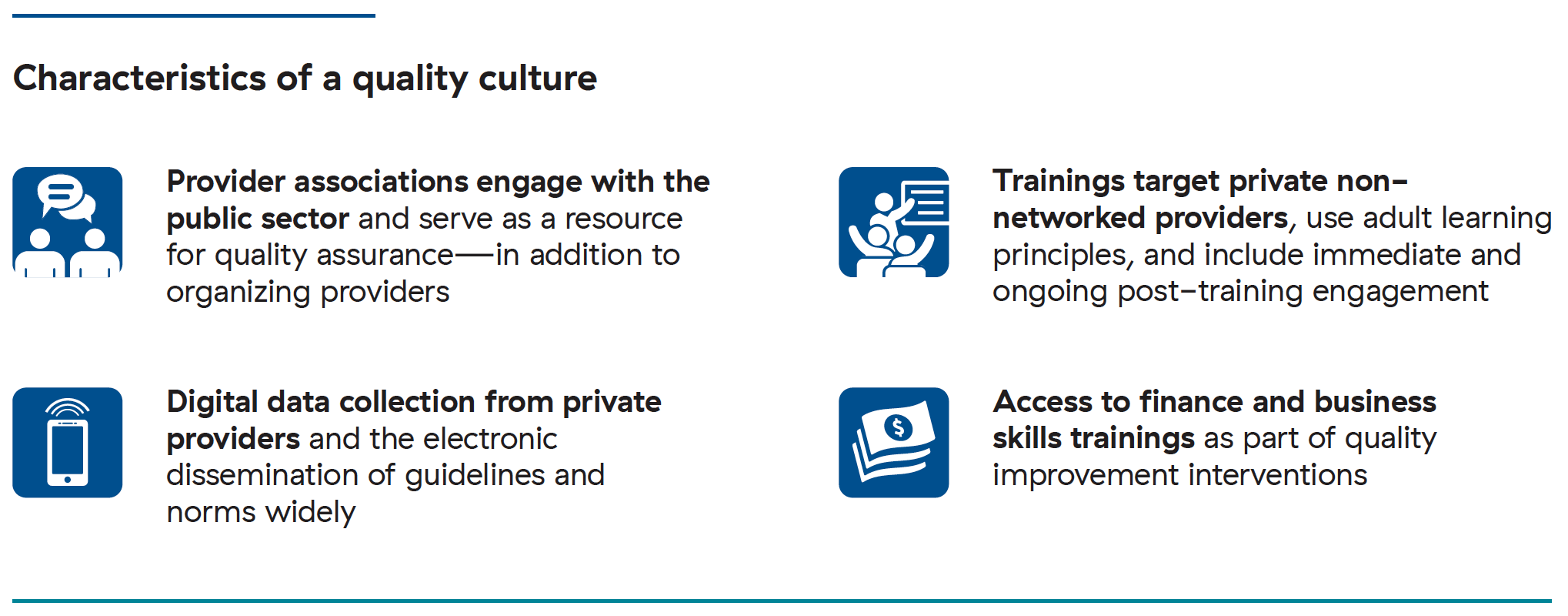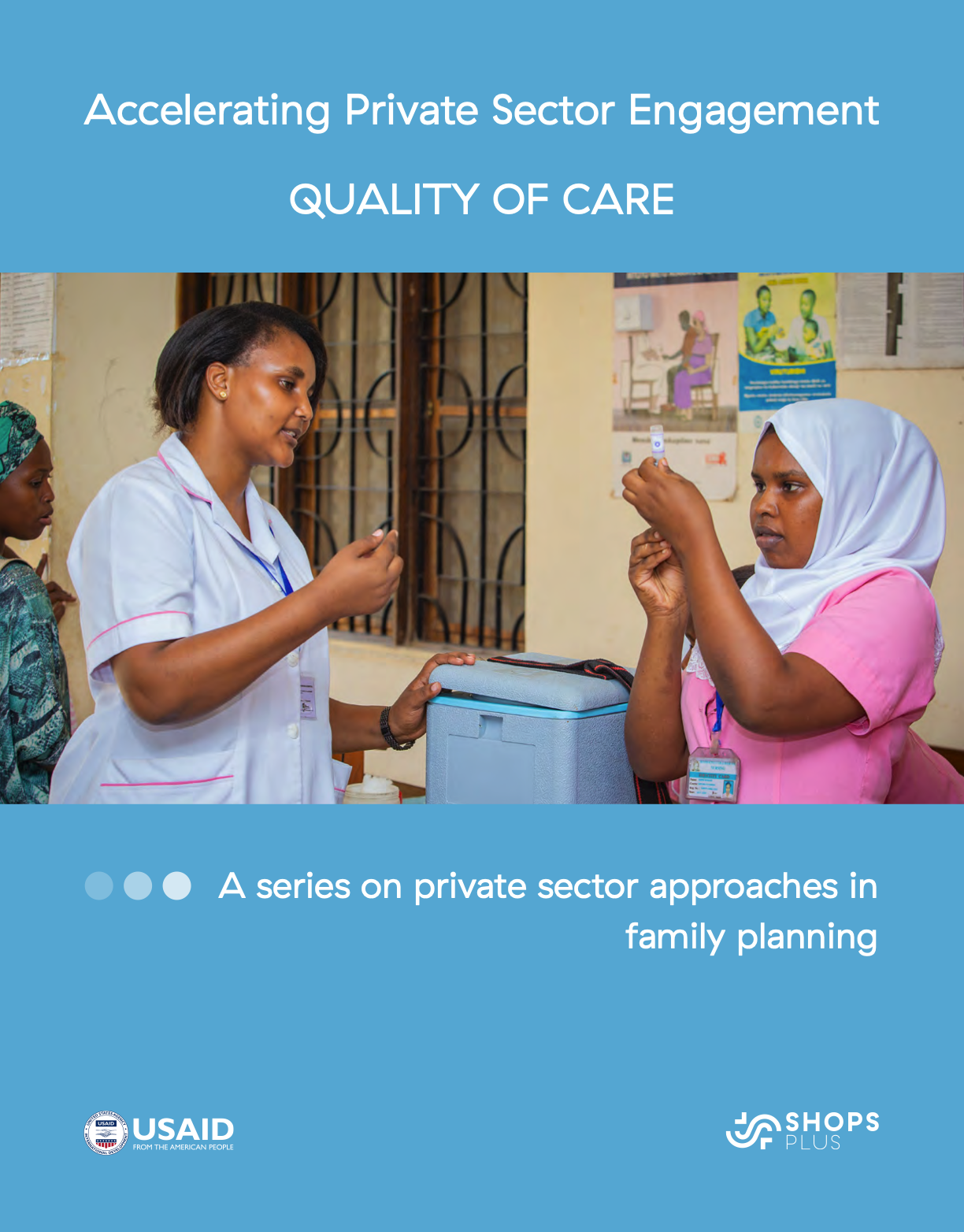Tips for improving the quality of private health care
How can we assure and sustain high levels of quality of care in private health care settings?
A new SHOPS Plus publication offers tips for donors and implementing partners from its work improving the quality of care in Madagascar, Nigeria, Senegal, and Tanzania. Country examples cover family planning, maternal and child health, HIV and TB. The brief is the second in a series that shares insights from five years of USAID’s flagship initiative in private sector health.
“Improving the quality of care is a top priority for the global community. Supporting private health providers requires understanding the environments in which they work, resources available to them and ultimately their motivations.” says James White, co-author. A registered pediatric nurse and clinical service delivery specialist, White serves as clinical advisor for SHOPS Plus.
The brief has these tips for assuring and improving the quality of health service delivery:
- Ensure all providers know the minimum service standards. Establish clear benchmark standards and communicate them to all health providers. Unfortunately, private providers do not often possess copies of key health service standards or related periodic updates.
- Understand the incentives and motivations of private providers. Private providers are genuinely motivated to deliver high quality services, but they often lack comprehensive definitions of what quality of care, quality assurance, and quality improvement are, or do not know which approaches to invest in.
- Consider the unique needs of non-networked private providers and facilities. The first challenge is locating them. Understanding their needs and challenges is critically important.
- Support the creation of a quality culture. Donors can consider several strategies that reinforce personal accountability and responsibility for improving quality of care such as building the capacity of health provider associations to extend their mandate and activities beyond maintaining certification requirements.

Using the approaches outlined in this brief, stakeholders can ensure that private health providers have the tools, knowledge, and clinical judgment they need to invest in strategies to achieve a high level of quality in their practices.
Download the brief
